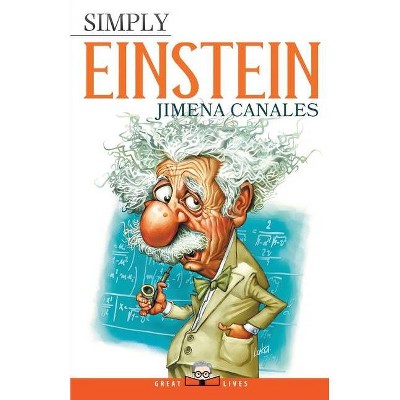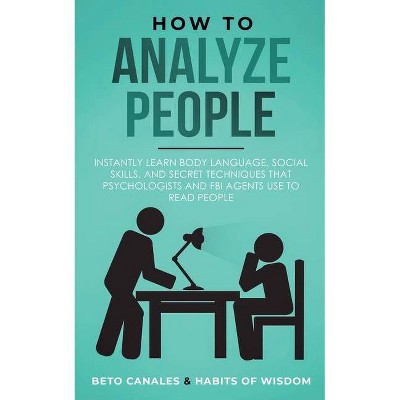Bedeviled - by Jimena Canales (Hardcover)

Similar Products
Products of same category from the store
AllProduct info
<p/><br></br><p><b> About the Book </b></p></br></br>"Thought experiments have long been a vital part of the creative, intellectual process in modern science-and, by extension, so have "demons." Demons are hypothetical beings imagined by scientists to perform specific roles within thought experiments-embodying special powers or abilities and personifying tough intellectual challenges or highlighting apparent paradoxes. They are used as a way of exploring what would happen if one fiddled with or upset the sturdiest of physical laws, or experimented with physical or natural processes or phenomena in ways that the scientist imagining them otherwise could not. As such, they help clarify the limits of what is possible in the physical world, or show weaknesses in our understanding of an observable phenomenon, or highlight cracks in a hypothesis or theory. Unencumbered by the physicality of our concrete world, demons are thus useful to scientists in their intellectual quest to understand how nature works, and in the creative exploration of the frontiers of science"--<p/><br></br><p><b> Book Synopsis </b></p></br></br><p><b>How scientists through the ages have conducted thought experiments using imaginary entities--demons--to test the laws of nature and push the frontiers of what is possible </b> <p/>Science may be known for banishing the demons of superstition from the modern world. Yet just as the demon-haunted world was being exorcized by the enlightening power of reason, a new kind of demon mischievously materialized in the scientific imagination itself. Scientists began to employ hypothetical beings to perform certain roles in thought experiments--experiments that can only be done in the imagination--and these impish assistants helped scientists achieve major breakthroughs that pushed forward the frontiers of science and technology. <p/>Spanning four centuries of discovery--from René Descartes, whose demon could hijack sensorial reality, to James Clerk Maxwell, whose molecular-sized demon deftly broke the second law of thermodynamics, to Darwin, Einstein, Feynman, and beyond--Jimena Canales tells a shadow history of science and the demons that bedevil it. She reveals how the greatest scientific thinkers used demons to explore problems, test the limits of what is possible, and better understand nature. Their imaginary familiars helped unlock the secrets of entropy, heredity, relativity, quantum mechanics, and other scientific wonders--and continue to inspire breakthroughs in the realms of computer science, artificial intelligence, and economics today. <p/>The world may no longer be haunted as it once was, but the demons of the scientific imagination are alive and well, continuing to play a vital role in scientists' efforts to explore the unknown and make the impossible real.</p><p/><br></br><p><b> Review Quotes </b></p></br></br><br>In this fascinating and informative book Canales treats the reader to a rich feast of scientific demons, tracing their histories and relevance from atomic and molecular physics to computer science and biology, including a chapter on demons in the global economy.<b>---V. V. Raman, <i>Choice</i></b><br><br>At the very same time that science was said to be demystifying the world, Canales shows us, scientists were populating it all over again with the demonic. . . . [Canales] links her demonology to what she calls 'the audacity of our imagination, ' our ability to imagine what does not yet exist or seems as if it cannot be real.<b>---Casey Cep, <i>New Yorker</i></b><br><br><i>Bedeviled</i> admirably insists on recording the plain history of science. It just so happens that the history of that most rational of human endeavors reads at times like a Gothic tale, one replete with evil geniuses, time travelers and uncanny intelligences lurking in reality's obscure corners.<b>---Jess Keiser, <i>Washington Post</i></b><br><br>The workings of powerful computers, the processes of evolution, the market forces that drive the global economy. To conceptualize such unseen forces, researchers have long invoked thought experiments involving demons, devils, golems or genies . . . Canales has given us a glimpse into this haunted realm.<b>---Ramin Skibba, <i>Nature</i></b><br><br>A brilliant, challenging overview of the myth-driven scientific endeavors that transform human understandings of the world.-- "Foreword Reviews"<br><br>Thought-provoking and highly readable . . . A welcome contribution to the philosophy of scientific discovery that deserves further scholarly attention.<b>---Jan G. Michel, <i>Science</i></b><br><p/><br></br><p><b> About the Author </b></p></br></br><b>Jimena Canales</b> is a writer and faculty member of the Graduate College at the University of Illinois, Urbana-Champaign. She was the Thomas M. Siebel Chair in the History of Science at the University of Illinois and associate professor at Harvard University. She is the author of <i>The Physicist and the Philosopher: Einstein, Bergson, and the Debate That Changed Our Understanding of Time</i> (Princeton) and <i>A Tenth of a Second</i>. She lives in Boston. Twitter @_Jimena_Canales
Price History
Cheapest price in the interval: 23.99 on October 23, 2021
Most expensive price in the interval: 23.99 on November 8, 2021
Price Archive shows prices from various stores, lets you see history and find the cheapest. There is no actual sale on the website. For all support, inquiry and suggestion messages communication@pricearchive.us




















